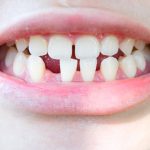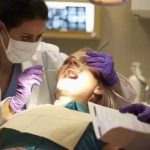MeatLovers’ Dilemma: When is it Safe to Indulge After Wisdom Teeth Extraction?
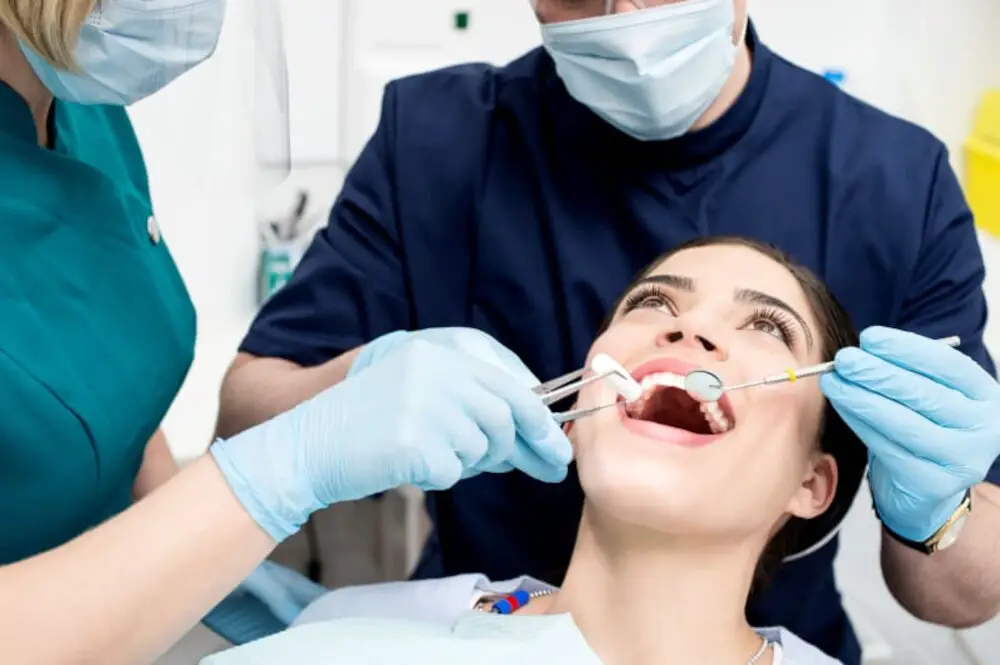
Wisdom teeth extraction is an extremely common dental procedure that most people undergo at some point in their lives. For meat lovers, the recovery process can be a bit of a challenge as they have to abstain from certain foods for a while. One of the biggest concerns for meat lovers after wisdom teeth extraction is when they can safely indulge in their favorite meat dishes again. While the answer to this question may vary depending on the individual and the extent of the extraction, there are some general guidelines that can help meat lovers navigate this dilemma. Firstly, it is important to understand that consuming certain types of meat in the immediate aftermath of wisdom teeth extraction can be detrimental to the healing process. Hard meats that require a lot of chewing and exertion, such as beef or pork, can dislodge the blood clot that is formed to protect the site of extraction and lead to a painful condition called dry socket. Therefore, it is recommended that meat lovers stick to softer meats that are easier to chew and won’t cause unnecessary pressure on the extraction site. This includes options such as chicken, fish, and ground meats.
The wisdom teeth extraction process is a common dental surgery that involves removing one or more of the third molars located at the back of the mouth. Before the procedure, the dentist or oral surgeon will administer anesthesia to numb the area and prevent pain during the operation. They will then make an incision in the gum tissue to access the tooth and remove it from the socket. In some cases, the tooth may need to be divided into smaller pieces to make it easier to remove. Once the tooth is removed, the socket will be cleaned and stitched up to promote healing. Patients will typically experience some discomfort, swelling, and bleeding after the procedure and are advised to rest and follow a soft food diet for several days. Pain medication and ice packs can help manage any discomfort, and the dentist will provide post-operative instructions for care and recovery.
Proper postoperative care is crucial for a successful and safe recovery after any surgical procedure, including wisdom teeth extraction. It involves following the instructions provided by the dental surgeon, which may include taking prescribed medications, maintaining good oral hygiene, avoiding strenuous activities, and consuming a soft diet. Neglecting proper postoperative care can lead to complications such as infection, excessive bleeding, swelling, and prolonged healing time. Therefore, it is essential to prioritize postoperative care to ensure a smooth and comfortable recovery and to avoid any potential risks that may hinder the healing process.
Understanding the Healing Process

The healing process is a natural response of the body to repair any damage or injury. After a wisdom teeth extraction, the healing process is essential to ensure proper recovery and prevent any complications. Understanding the healing process is crucial to know when it is safe to indulge in your favorite foods. In general, the healing process takes around two weeks, during which the gum tissue and bone around the extraction site will gradually heal. However, the timeline may vary depending on several factors, including age, overall health, and the extent of the surgery. The first stage of the healing process is the initial clot formation, which helps to stop bleeding and protect the extraction site. This stage typically lasts for the first 24-48 hours after the surgery. Afterward, the body will start to produce new tissue to replace the clot, and the gum tissue will gradually heal. During this phase, it is essential to avoid any irritants or pressure on the extraction site, such as smoking, using a straw, or eating hard and crunchy foods. Following the instructions provided by your dentist or oral surgeon and maintaining proper oral hygiene can help to promote the healing process and reduce the risk of infection.
After wisdom teeth extraction, the healing process can take several days to weeks, depending on the individual’s oral health condition. Immediately after the surgery, patients may experience bleeding, swelling, and discomfort, which can be managed with ice packs, pain medication, and rest. To promote healing, patients should avoid smoking, using straws, and consuming hard or chewy foods for a few days. As the wound heals, patients can gradually reintroduce solid foods into their diet after consulting with their oral surgeon. It is essential to maintain good oral hygiene by gently brushing teeth and rinsing with saltwater to prevent infection. While it is tempting to indulge in meaty delights, patients should wait until their oral surgeon gives them the green light to avoid any complications or setbacks in the healing process.
There are several factors that can affect the healing time after wisdom teeth extraction. Firstly, the age and overall health of the patient can play a role, as younger and healthier individuals may heal faster. Smoking and tobacco use can also delay healing, as can poor oral hygiene. Additionally, the difficulty of the extraction procedure and the extent of the damage to surrounding tissues can impact how long it takes for the area to heal. Finally, following post-operative instructions such as avoiding hard or crunchy foods and keeping the area clean can also contribute to a quicker recovery time.
Following postoperative instructions is crucial for a successful recovery after any surgical procedure. It is especially important after wisdom teeth extraction, as it is a delicate procedure that requires proper aftercare to avoid complications. Patients who disregard postoperative instructions risk developing infections, bleeding, and delayed healing. These complications can prolong recovery time, cause unnecessary pain and discomfort, and even result in the need for additional medical intervention. Therefore, it is essential for patients to adhere to their surgeon’s instructions, which may include avoiding certain foods, practicing good oral hygiene, taking prescribed medications, and attending follow-up appointments. By doing so, patients can ensure a smooth and uncomplicated recovery and get back to their regular routines as soon as possible.
Foods to Avoid
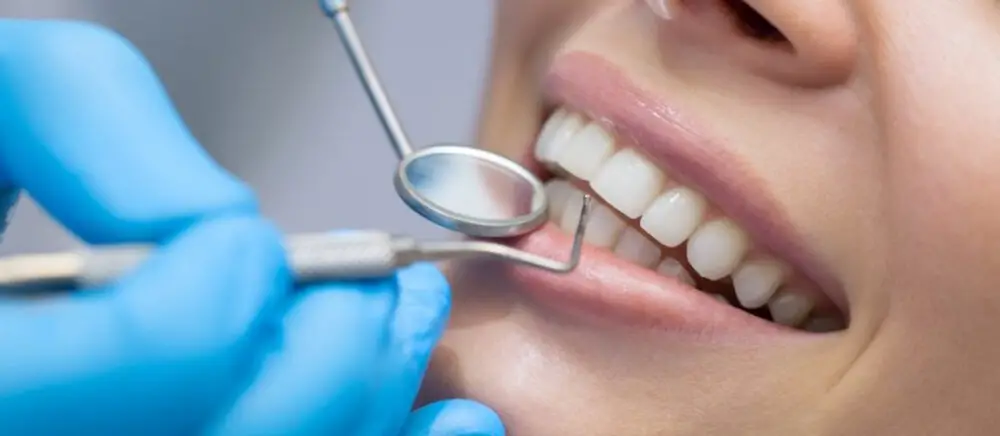
After wisdom teeth extraction, it is essential to avoid certain foods to promote quick healing and prevent any complications. One of the most crucial foods to avoid is hard and crunchy foods. These foods can cause irritation and pain in the surgical site, leading to delayed healing. Additionally, they can also dislodge the blood clot, which is crucial for the healing process, leading to dry socket. Some of the foods to avoid include nuts, chips, popcorn, and raw vegetables. Another food category to avoid after wisdom teeth extraction is spicy and acidic foods. These foods can cause a burning sensation in the surgical site, leading to discomfort and pain. Additionally, acidic foods can also delay the healing process by irritating the surgical site. Some of the foods to avoid include citrus fruits, tomato-based sauces, and hot sauce. It is essential to stick to soft and bland foods for the first few days after wisdom teeth extraction and slowly reintroduce other foods as the healing progresses. By avoiding these foods, patients can promote quick healing and prevent any complications.
After wisdom teeth extraction, it is important to avoid certain foods to prevent any complications or discomfort during the healing process. Meat-lovers, in particular, should be cautious with their food choices as tough and chewy meats can cause irritation and pain. Some of the foods to avoid include steak, beef jerky, pork, and chicken wings. Sticky and hard foods such as caramel and popcorn should also be avoided as they can get lodged in the extraction site and delay healing. It is recommended to opt for soft and easy-to-chew foods such as mashed potatoes, soups, and smoothies for the first few days after the surgery. As the healing progresses, gradually introduce solid foods back into your diet, starting with softer meats like fish or ground beef.
After a wisdom teeth extraction procedure, there are certain foods that should be avoided to ensure proper healing and to prevent any complications. Meat is one of those foods that should be avoided, especially in the first few days post-procedure. The act of chewing meat requires a lot of force, which can put pressure on the extraction site and cause bleeding or dislodge the blood clot that forms in the socket. Additionally, meat can be tough and stringy, which can easily get stuck in the extraction site and create an environment for bacteria to grow and cause infection. Therefore, it is best to avoid meat and opt for softer, easier-to-chew foods that will not harm the healing process.
After Wisdom Teeth Extraction, it is crucial to follow a proper timeline for reintroducing certain foods to prevent further complications and ensure proper healing. Typically, the first few days after surgery, the diet should be limited to soft, nutritious foods such as soups, smoothies, and mashed potatoes. As the healing progresses, solid foods can gradually be introduced but should be cut into small pieces or shredded to avoid any trauma to the surgical sites. It is recommended to avoid crunchy, spicy, or acidic foods for at least a week after surgery. Patients should also avoid using straws and smoking as they can cause dry sockets, which can delay the healing process. Patients should consult their dentist or oral surgeon for specific dietary instructions tailored to their individual needs and recovery progress.
The MeatLover’s Dilemma
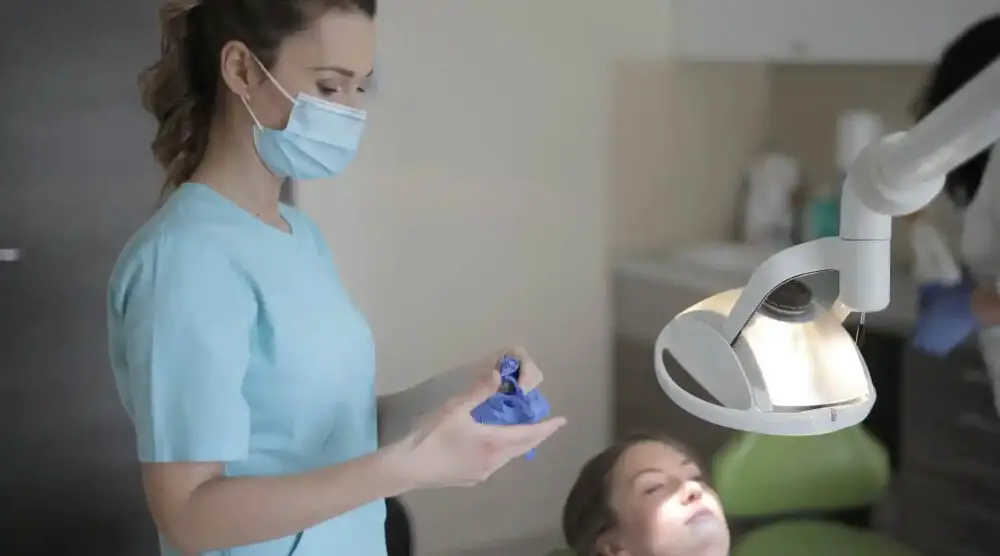
For meat lovers, the thought of going without their favorite meal for an extended period can be a daunting prospect. However, when faced with a wisdom teeth extraction, it becomes a necessity. Many people find themselves wondering when it is safe to indulge in their favorite meaty dish again. The dilemma arises because consuming meat can be a challenging task after wisdom teeth are removed. The extraction site is delicate and requires time to heal, making it difficult to chew meat without causing further discomfort. While everyone’s recovery time is different, it is generally recommended to wait at least a week before consuming meat. During the healing process, it is crucial to avoid any food that could damage the extraction site. Meat, in particular, can be tough to chew, and small particles can get lodged in the wound, leading to infection. For the first few days after the procedure, it is recommended to stick to soft foods like soups, smoothies, and mashed potatoes. Once the swelling has gone down, and the extraction site has started to heal, you can begin to introduce meat back into your diet slowly. It is essential to start with small, tender pieces and chew carefully to avoid any further damage to the site. By following these guidelines, you can safely indulge in your favorite meat dish without compromising your recovery.
After wisdom teeth extraction, consuming meat can be problematic due to several reasons. First, meat requires a significant amount of chewing and grinding, which can cause pain and discomfort to the surgical site, leading to delayed healing. Secondly, meat can leave small particles and fibers that can get trapped in the extraction socket and cause infection or dry socket, which is a painful condition where the blood clot that forms after extraction becomes dislodged. Lastly, meat is often tough and chewy, which can stretch the jaw muscles and cause stiffness and soreness. Therefore, it is advisable to avoid meat for at least the first few days after wisdom teeth extraction and stick to soft and easy-to-chew foods to ensure proper healing and avoid complications.
If you are a meat-lover who recently underwent wisdom teeth extraction, don’t fret! There are plenty of alternatives to meat that are safe and satisfying to eat. From plant-based protein sources such as tofu, tempeh, and seitan to seafood options like fish and shrimp, there are plenty of tasty options to choose from. You can also try incorporating legumes, nuts, and seeds into your diet for a boost of protein and healthy fats. Additionally, dairy products such as cheese, yogurt, and milk can provide a good source of protein as well. So, whether you are looking for a temporary meat substitute while you recover from your wisdom teeth surgery or are considering a more permanent shift towards a vegetarian or pescatarian diet, there are plenty of delicious and nutritious options to choose from.
After wisdom teeth extraction, it is important to follow a proper timeline for reintroducing meat into the diet. This timeline may vary depending on the individual’s healing process and the extent of the extraction. Generally, it is recommended to wait at least three days before consuming any solid foods, including meat. After this initial period, soft and easy-to-chew foods, such as ground meats or well-cooked poultry, can be gradually reintroduced. It is important to avoid tough or chewy meats, as well as spicy or acidic foods, for at least a week following the extraction to prevent any irritation or damage to the healing site. As the healing progresses, the individual can gradually increase the texture and variety of meats in their diet, but it is important to always listen to the advice of your dentist or oral surgeon and follow their specific recommendations.
Tips for Safe Indulgence

Indulging in your favorite meat dishes after wisdom teeth extraction can be quite tempting, but it’s crucial to keep safety in mind. To ensure a smooth recovery, it’s essential to follow certain tips for safe indulgence. Firstly, opt for softer, easier-to-chew meats such as ground beef, chicken, or fish fillets. Avoid tough or chewy meats such as steak or pork chops as they can cause discomfort or even dislodge the blood clot in the extraction site. Additionally, it’s recommended to cut the meat into small, bite-sized pieces to make it easier to chew and reduce the risk of accidentally biting down on the extraction site. Another vital tip for safe indulgence is to avoid spicy or heavily seasoned meats. Spices and seasonings can irritate the extraction site and slow down the healing process. Instead, opt for simple, lightly seasoned meats that are easy on the palate. It’s also important to avoid using straws while drinking any beverages, as the suction can dislodge the blood clot and cause dry socket. Lastly, remember to keep up with your oral hygiene routine by gently brushing your teeth and rinsing your mouth with salt water after meals to keep the extraction site clean and promote healing. By following these tips, you can safely indulge in your favorite meat dishes while ensuring a speedy recovery.
After having wisdom teeth removed, it is important to follow proper guidelines for reintroducing favorite foods. For the first few days, soft and cool foods like yogurt, soup, and ice cream are recommended. Avoid hot and spicy foods as they can increase pain and swelling. After a few days, introduce semi-soft foods like mashed potatoes, scrambled eggs, and pasta. It’s important to chew on the opposite side of the extraction site to avoid irritation. Once the extraction site has healed, usually around 7-10 days, you can introduce your favorite foods back into your diet. However, it’s important to still avoid hard, crunchy, and sticky foods for at least a few more weeks to prevent any damage to the healing area. By following these guidelines, you can ensure a safe and speedy recovery after wisdom teeth extraction.
Moderation and listening to your body are essential elements in maintaining good health. After a wisdom teeth extraction, it is crucial to adhere to a strict diet that promotes healing and avoids complications. While meat-lovers may be tempted to indulge in their favorite dishes, it is important to practice moderation and gradually reintroduce solid foods into the diet. Listening to your body’s signals is equally important; discomfort and pain are clear signs to avoid certain foods and stick to soft, nutrient-rich options. By practicing moderation and listening to your body, individuals can ensure a smooth and successful recovery process after wisdom teeth extraction.
After wisdom teeth extraction, it is common to experience discomfort and pain. However, there are several tips that can help minimize these discomforts. First, avoid consuming hot or cold foods and drinks as it can irritate the surgical area. Opt for lukewarm or room temperature foods instead. Secondly, stick to a soft food diet for the first few days to avoid putting pressure on the surgical site. Soups, smoothies, and mashed potatoes are good options. Thirdly, avoid using straws and smoking as it can dislodge the blood clot and delay the healing process. Lastly, make sure to take the prescribed pain medication on time and attend follow-up appointments with your dentist to ensure proper healing. By following these tips, you can minimize discomfort and speed up the recovery process after wisdom teeth extraction.
After a wisdom teeth extraction, meat-lovers may find themselves in a dilemma. While they may be craving their favorite meaty dishes, it is important to be cautious about what they eat to avoid any complications. It is recommended to avoid hard and chewy foods for the first few days after the procedure to allow the surgical site to heal properly. Once the initial healing period is over, soft and tender meats such as chicken, fish, and ground beef can be consumed. It is important to avoid any foods that may cause irritation or infection to the surgical site, such as spicy or acidic foods. By following these guidelines, meat-lovers can safely satisfy their cravings without compromising their recovery process.
In conclusion, a successful recovery after wisdom teeth extraction requires a few key elements. Firstly, it’s critical to take your post-operative instructions seriously and follow them to the letter. This includes taking your pain medications as directed and avoiding risky foods like tough meats and sticky, sugary treats. Additionally, you should prioritize rest and avoid any strenuous activity for the first few days after your surgery. Finally, be sure to maintain excellent oral hygiene habits, including gentle brushing and flossing, to prevent infection and promote healing. By following these recommendations, you can ensure a smooth and speedy recovery after your wisdom teeth extraction, and get back to your normal routine as quickly as possible.
Conclusion
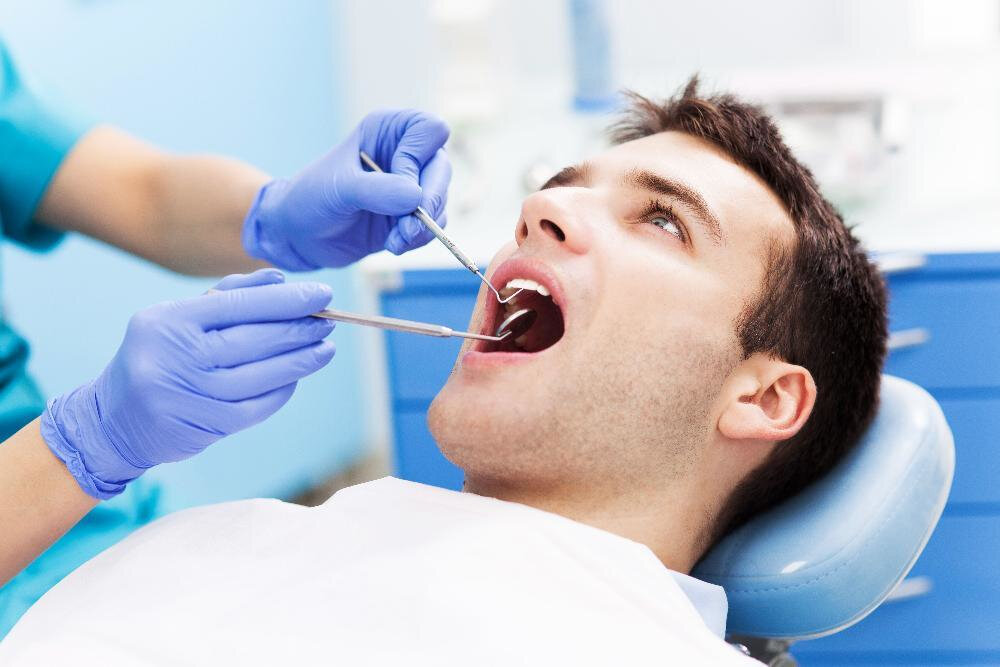
In conclusion, the meat lovers’ dilemma after wisdom teeth extraction is a common concern for many individuals. It is important to follow the post-operative instructions provided by the dentist or oral surgeon to ensure proper healing and prevent any complications. While it may be tempting to indulge in your favorite meaty meals, it is essential to wait until the healing process is complete to avoid any damage to the extraction site. It is recommended to consult with your dentist or oral surgeon for personalized advice on when it is safe to consume meat after wisdom teeth extraction. Remember, patience and proper care are key to a successful recovery and maintaining good oral health in the long run.
